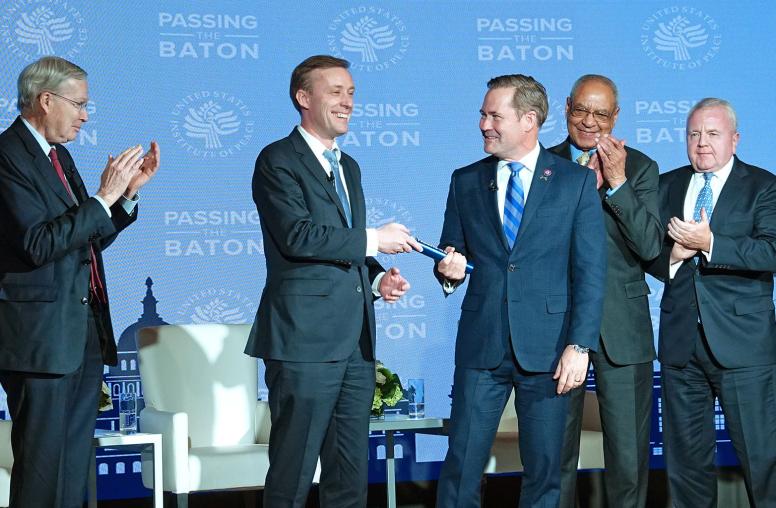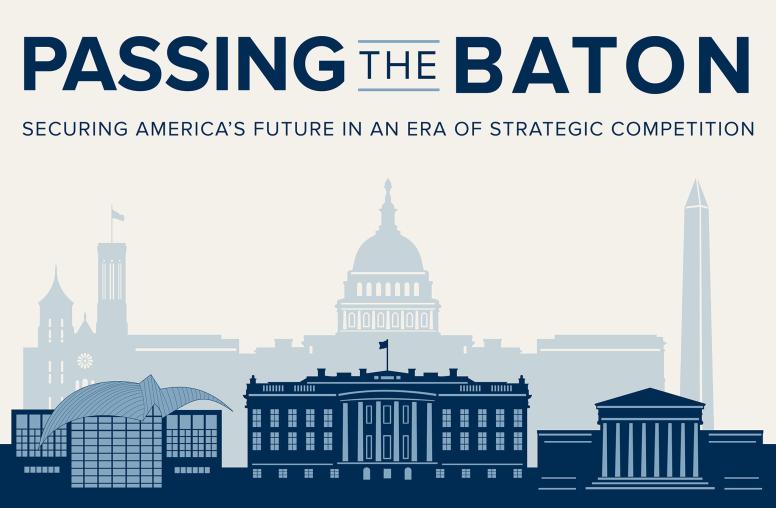New USIP Book Details History of Nuclear Weapons Programs
International Atomic Energy Agency (IAEA) Key to Success of Nuclear Verification Efforts
For Immediate Release
Contacts:
Paula Burke, 202-429-4778
Steven Ruder, 202-429-3825
(Washington)—The United States Institute of Peace (USIP) releases Detect, Dismantle, and Disarm: IAEA Verification, 1992-2005, by Christine Wing and Fiona Simpson. This book chronicles the IAEA’s experience when faced with revelations of a state’s hidden nuclear program. Analysis of four cases—Iraq, the Democratic People’s Republic of Korea (DPRK), South Africa, and Libya—reveals how verification has worked in practice and captures lessons useful for future missions.
Detect, Dismantle, and Disarm arrives at a time of great importance for the nuclear disarmament, nonproliferation, and arms control communities, as both the DPRK and Iranian nuclear programs draw intense international scrutiny and frequent negotiation. Wing and Simpson continue, “there are lessons in the IAEA’s past experience that can be useful in thinking about its role in verifying compliance with future agreements.”
The authors effectively highlight how the IAEA has operated alongside governments and international bodies to develop strategies for ensuring dismantlement of covert nuclear programs over the last two decades. With richly detailed histories of each state’s nuclear program, descriptions of interagency dynamics, and carefully considered predictions, this book provides a fresh, accessible, and nontechnical perspective on future nuclear nonproliferation agreements.
“Our goal is to distill these experiences into a form that will be helpful for policymakers—particularly those who are not technically trained—and for nongovernmental organizations (NGOs) and journalists who want to assess those activities from the outside,” state Wing and Simpson.
The authors identify key questions for the development of future verification missions, including the need for firm initial agreements for inspections, the importance of the number of actors involved in the process, and the role of the IAEA. They also suggest the time may be ripe to reconsider the rules that apply to states that seek to obstruct verification efforts.
“The challenge for those developing or evaluating these new verification efforts will be to discern the right lessons for the right cases,” conclude Wing and Simpson. “We hope that this study will assist in that task.”
About the Authors
Christine Wing is an independent consultant. She teaches about nuclear nonproliferation, is a nonresident senior fellow at the Center on International Cooperation at New York University, which was a grantee of USIP (2007–08). Fiona Simpson was a senior fellow at the Center on International Cooperation during the writing of this book. Previously, she worked at the International Atomic Energy Agency. Simpson currently works in the Weapons of Mass Destruction Branch of the United Nations Office for Disarmament Affairs.
About the United States Institute of Peace
The United States Institute of Peace is an independent, nonpartisan conflict management center created by Congress to prevent and mitigate international conflict through nonviolent means. USIP saves lives, increases the government’s ability to deal with conflicts before they escalate, reduces government costs, and enhances national security. USIP is headquartered in Washington, DC. To learn more, visit www.usip.org.
Detect, Dismantle, and Disarm: IAEA Verification, 1992-2005
United States Institute of Peace Press
March 2013 • 184 pp. • 6 x 9 • $19.95 (paper) • ISBN: 978-1-60127-076-4



